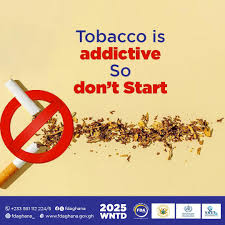Ing. Peter Antwi Boasiako, Deputy Director General of the Commission for Technical and Vocational Education and Training (CTVET), has raised concerns over the promises made by former President John Dramani Mahama regarding Technical and Vocational Education and Training (TVET) in Ghana.
Ing. Boasiako argued that the NVTI, as an independent agency, no longer exists in the capacity Mahama envisions, having been absorbed into the broader framework established by new legislation. According to Ing. Boasiako, the landscape of TVET in Ghana has undergone substantial reforms due to two key legislative acts.
“The Education Regulatory Bodies Act 2020 (Act 1023) and the Pre-tertiary Education Act 2020 (Act 1049). These Acts restructured the governance of technical and vocational education, placing the regulation, administration, and promotion of TVET under the purview of the CTVET. Moreover, they authorized CTVET to oversee the assessment and certification of all TVET institutions in the country.”
Ing. Peter Antwi Boasiako, Deputy Director General of CTVET
Ing. Boasiako revealed that with the enactment of Act 1049, the Government of Ghana realigned various technical and vocational schools, including those previously managed by the NVTI, under the Ministry of Education.
This move centralized the management of TVET institutions under the Ghana TVET Service, while the Ghana Education Service (GES) retained control only over grammar schools.
Additionally, Ing. Boasiako noted that TVET institutions have been integrated into the School Selection Placement System (CSSPS), making them beneficiaries of the Free Senior High School (Free SHS) policy.
These legislative changes, Boasiako emphasized, are critical to understanding the current state of TVET in Ghana, suggesting that Mahama’s references to NVTI as a standalone agency are outdated.
Ing. Boasiako’s critique follows Mahama’s recent manifesto launch, where he pledged to use the National Vocational Training Institute (NVTI) to equip Ghanaian youth with TVET skills aimed at creating employment opportunities.
Ing. Boasiako’s comments suggested that Mahama’s promises reflect a significant lack of awareness of the recent reforms in Ghana’s educational system, particularly concerning TVET.
Implementation of the National TVET Qualifications Framework

Ing. Boasiako also took issue with Mahama’s promise to fully implement the National TVET Qualifications Framework (NTVETQF), describing it as “a total misplaced promise.”
Ing. Boasiako clarified that the NTVETQF, which encompasses eight levels of qualifications ranging from Proficiency 1 & 2 to Doctorate Degrees in Technology, has already been fully implemented.
“This framework standardizes TVET qualifications across the country, ensuring a consistent and progressive pathway for students from basic to advanced levels of technical education.”
Ing. Peter Antwi Boasiako, Deputy Director General of CTVET
Another area where Ing. Boasiako believed Mahama’s manifesto falls short is in the Recognition of Prior Learning (RPL). Mahama’s pledge to implement RPL was dismissed by Ing. Boasiako, who pointed out that, “the policy is not only already in place but is also legally formalized and operational across 17 approved TVET centers in Ghana.”
The RPL policy allows individuals with informal training and experience, particularly from traditional apprenticeships, to gain formal recognition and certification for their skills.
Ing. Boasiako highlighted the success of the RPL policy, noting its critical role in acknowledging the competencies of Ghana’s vast informal workforce, particularly at the Proficiency I and II levels. This initiative, he argues, has been vital in integrating informal apprentices into the formal TVET system.
Furthermore, Ing. Boasiako referenced the recent launch of the National Apprenticeship Policy by Vice President Dr. Mahamudu Bawumia on March 13, 2024. Under the CTVET’s oversight, this policy has already benefited over 19,000 master craftsmen and their apprentices, with plans to expand training and upskill more than 50,000 youth in the coming year.
STEM and Robotics Competitions
Ing. Boasiako was equally critical of Mahama’s proposal to introduce robotics competitions across Senior High Schools (SHS) in Ghana, calling it an “inferior policy idea” compared to the existing Science, Technology, Engineering, and Mathematics (STEM) Innovation competition, known as STEMNNOVATION, which has already been implemented by the Ministry of Education.
The STEMNNOVATION competition, according to Ing. Boasiako, provides a broader platform for students from SHS, SHTS (Senior High Technical Schools), and TVET institutions to showcase their skills in robotics, mechatronics, and other STEM fields.
The competition challenges students to apply these technologies in solving real-world problems in their communities, contributing to Ghana’s socioeconomic development. The success of this program was evident when last year’s national winners were invited to Japan to showcase their innovations.
“Over 60% of Mahama’s vision for the youth in his Manifesto to use TVET to create employable skills for the youth in Ghana are inferior to the current running policies under this government. Dr Bawumia’s vision to train one million Ghanaian youth to have digital skills is superior idea.”
Ing. Peter Antwi Boasiako, Deputy Director General of CTVET
Ing. Boasiako emphasized that under President Nana Akufo-Addo’s administration, significant investments and reforms have been made in the TVET sector, including the introduction of free TVET, which has led to a substantial increase in enrollment.
Ing. Boasiako urged Mahama to update his knowledge of the TVET landscape, describing his promises as “totally empty” and out of touch with the progress made in recent years.
READ ALSO: A New Era of Digital Finance in Ghana







